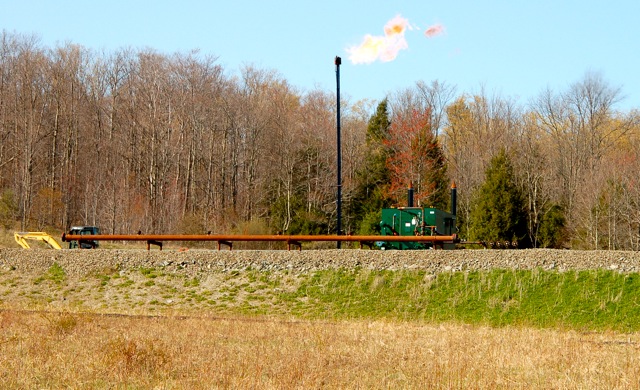In past articles I have commented on the economic growth of the United States and the languishing European economy. Bottom line, in the United States measures have been taken since 2008, while Europe has mostly sat there twiddling its thumbs. Nevertheless, some experts remain skeptical, asking: Is the United States really growing because of its improved economy or the contribution of fracking to its GDP?

Richard W. Rahn, senior fellow of the Cato Institute and Chairman of the Institute for Global Economic Growth, was very emphatic in an article published a few months ago, saying that without fracking there would have been no economic growth in the United States over the past five years. I wonder if his analysis will hold true. Let’s review some of the arguments and figures cited by Rahn:
- Without fracking there would have been no economic growth over the past five years.
- Fracking (unconventional oil and gas) represents 2.5% of America’s GDP, and this percentage is quickly rising.
- According to the report America’s New Energy Future: The Unconventional Oil and Gas Revolution and the US Economy, fracking added $284 billion to U.S. GDP in 2012 (1.7%) and $462 billion in 2013 (2.8%).
These claims surprised me, so I decided to do a little fact-checking. The U.S. Bureau of Economic Analysis provides data on what each sector contributes to the GDP:
- The U.S. GDP in 2012 was $16,245 billion.
- The oil industry (“traditional” oil and gas plus fracking) added $269 billion to GDP (1.7%).
- As such, it is absolutely impossible that fracking contributed $284 billion. It would mean that all oil and gas produced in the United States came from fracking. The data on fracking are heavily inflated.
- The fact is that the numbers these folks cite are simply wrong.
But that’s not all:
- America’s GDP grew $2,262 billion from 2009 to 2013.
- If the U.S. growth were entirely due to fracking, then fracking would have contributed $2,262 billion. According to the authors, fracking contributed $284 billion in 2012 and less in previous years. Therefore it could not have added $2,262 billion in 4 years.
- In summary, the claims of these gentlemen are inconsistent with the figures that they themselves work with.
The truth is that from 2009 to 2013 the oil and gas industry (as a whole) grew about $160 billion, while overall GDP was up $2,262 billion. Thus, the entire oil and gas industry represents only 7% of the GDP growth in the United States.
The moral of the story: There are many economists and experts with a great interest in presenting numbers and opinions to their own benefit, despite the very pompous names of the institutions they serve.



Muy reconfortante que entre tanta confusión alguien ponga un poco de criterio. Gracias profesor.
Añado un link por si alguien quiere acabar de confirmar lo leído ……
saludos.
http://www.zerohedge.com/news/2014-11-15/shale-oil-expensive-over-hyped-short-lived